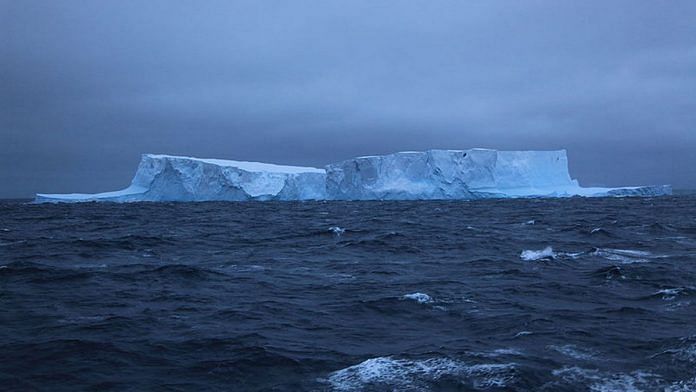Bengaluru: The Indian Scientific Expedition to the Southern Ocean (ISESO) 2020, which aims to improving predictions of future climate changes, was flagged off from Mauritius Saturday.
The two-month-long expedition will be carried onboard the South-African oceanographic research vessel S.A. Agulhas by an 18-institution team led by Anoop Mahajan of the Indian Institute of Tropical Meteorology (IITM), Pune.
The mission’s objective is to understand “the role and response of the Southern Ocean to the regional and global climate variability”. It will investigate air-sea-ice interactions and aerosols over the Southern Ocean (also known as the Antarctic Ocean). The vessel will explore the waters between India and Antarctica.
“The scientific operations for observations pertaining to all disciplines — atmospheric, physical, chemical, biological, geological, air-sea-ice interaction and etc — will be carried out by the scientists and trained engineers during the expedition period,” Anil Kumar, head of the Southern Ocean Research Program and group director of Ocean Sciences at the National Centre for Polar & Ocean Research (NCPOR) in Goa, told ThePrint.
The ISESO was initiated in 2004 by the Ministry of Earth Sciences (MoES) to understand the impact of climate change on the Southern Ocean. The first expedition to the region — aptly called the Pilot Expedition — was undertaken from January to March 2004.
The next was Special Expedition, which was undertaken in 2006.
Successes in these two missions had enabled the MoES to pursue further scientific programmes in the Indian Ocean and Southern Ocean. ISESO 2020 is the 11th Indian expedition to the Southern Ocean and the largest oceanic expedition from the country.
“We are hoping to collect very large amounts of data,” Mahajan told ThePrint. “The more data we have, the better understanding we will have and the more constraints there will be on climate models.”
He will embark on his third Southern Ocean expedition this year and the first one as a team leader.
Also read: ‘State of planetary emergency’: Global climate tipping points seen in fresh warning
Expedition to enhance weather forecasts
Scientists on this mission will collect samples of water and air from 60 stations along the cruise route, which runs along the coast of the upper stretch of Antarctica where India’s third station, Bharati, is situated.
The mission is expected to provide data on how waters in the Southern Ocean and the desolate Antarctic landscape have been changing due to human-induced climate change.
The research team will quantify these changes and their impact on weather phenomenon such as the monsoons. This is expected to improve understanding of large-scale natural processes and the future climate of India as well as the world.
The expedition is also likely to help better weather forecasts.
“The overall objective of missions like ours is to improve understanding of what the climate is going to be like in the future. All other individual projects will help contribute to the common aim of understanding the climate system,” added Mahajan.
Also read: How China has stepped up under-sea information-gathering in Bay of Bengal
Trained chef to prepare meals on vessel
For the expedition, proposals submitted by various researchers were selected post-August and those chosen were given safety training onboard an ice-class research vessel.
Provisions for food have been stocked in deep freezers in Mauritius. “All meals and other required food items for all participants will be prepared onboard by a trained chef and his team,” said Kumar.
Some of the participating institutes in the expedition are India Meteorological Department, IITM in Pune, NCPOR in Goa, Indian Institute of Science in Bengaluru, Physical Research Laboratory in Ahmedabad, National Institute of Ocean Technology in Chennai, Annamalai University and even Jawaharlal Nehru University in Delhi.
NCPOR-Goa has been undergoing the planning and implementation part of the expedition on behalf of MoES.
The ISESO 2020 has 39 scientists on board, and will undertake 18 projects, including studying the effects of microplastics, the status of cephalopods, marine bacteria, carbon storage in oceans and heat dynamics in the Southern Ocean.
Previous ISESO missions have yielded key findings, including identifying zones of ventilation or release of carbon dioxide, polluting airborne particles in the Southern Ocean, and how eddies affect marine ecosystems in warm and highly saline subtropical waters.
Also read: Ferdinand Magellan — the explorer whose daring sea voyage gave the Pacific Ocean its name



